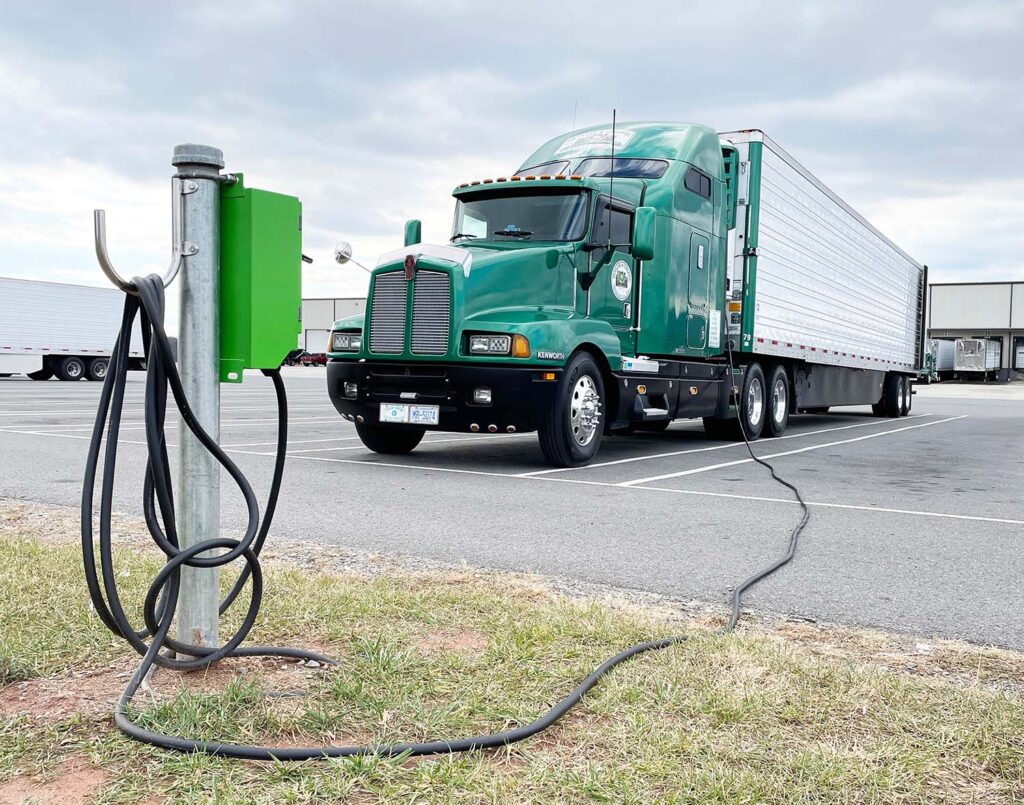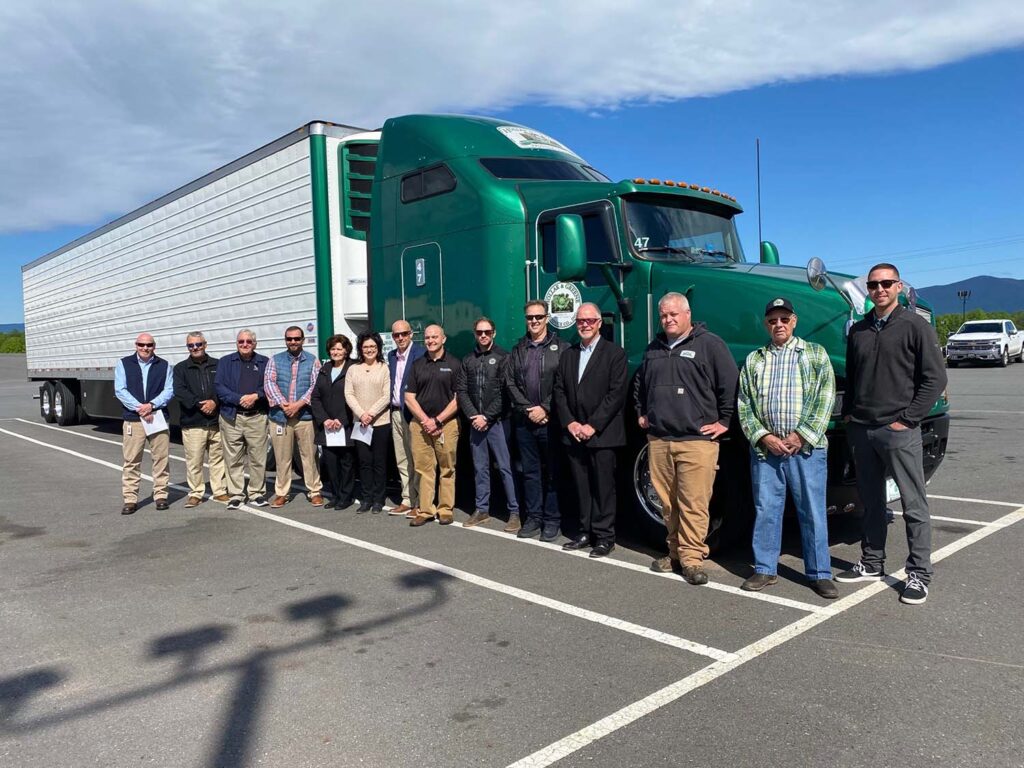
If Hollar & Greene Produce Co.’s cabbages aren’t chilled at just the right temperature, Walmart, one of its largest customers, can’t use them.
“If it’s more than 1 or 2 degrees off, they can reject the whole load. That’d be 1,000 boxes rejected, and that wouldn’t be good,” said Tony Greene, the fleet manager of the Boone, North Carolina-based company, a commercial member of Surry-Yadkin Electric Membership Corp. in Dobson.
But keeping cabbage pulps chilled at 36 degrees Fahrenheit takes a lot of electricity. And until recently, the family-owned business’s food warehouse in Mount Airy burned expensive diesel fuel to run the refrigeration units nonstop.
Now, thanks to an award-winning co-op pilot based on the principles of beneficial electrification, one of the nation’s largest fresh cabbage shippers is spending less on fuel and reducing emissions and noise pollution by switching to an electric transport refrigeration unit (eTRU) to chill the produce. Wedged between the driver’s cab and trailer, the unit plugs into equipment at a company warehouse.
Annual savings per trailer in fuel and operations and maintenance “are expected to be significant,” according to co-op estimates.

“It’s a no-brainer,” Greene said. “It works really well for us because when we were using diesel, we’d load the trucks in the morning and the driver wouldn’t be leaving until as late as 9 or 10 p.m. that evening for delivery the next day. On hot days, the trailer traps the heat from the outside, so you have to keep the unit running.”
Encouraged by the pilot’s success, North Carolina’s Electric Cooperatives wants to take the project statewide, creating a playbook that key accounts advisers at the state’s 26 co-ops can distribute to commercial and industrial members next year.
While only about 10% of co-op key accounts in North Carolina are transportation-related, co-ops can find ways to package the technology with other energy solutions.
“We want to put our distribution co-ops in a position where they can be ahead of the curve and help their members achieve goals” of reducing emissions, noise and fuel prices, said James Musilek, vice president of innovation and business development at the Raleigh-based statewide association and generation and transmission cooperative.
Last year, the Research Triangle Cleantech Cluster awarded Surry-Yadkin EMC and Hollar & Greene an innovation award in the transportation category.
“Because transportation sources account for 36% of North Carolina’s greenhouse emissions, this type of program has the potential to help meet the state’s carbon targets,” according to the group’s website.
Key accounts managers at North Carolina co-ops are working with other businesses to electrify agricultural and commercial processes through irrigation and equipment and, at a local community college, agricultural hydroponics.
Burgaw-based Four County EMC and James Sprunt Community College launched a smart farm inside a shipping-container-turned-greenhouse. They are testing agricultural hydroponics, a method of growing plants in a nutrient-rich water solution instead of soil.
“A large portion of our members work in the agriculture field, and we saw this partnership as an opportunity to introduce technology that could benefit an industry that is very important to eastern North Carolina,” said Greg Sager, vice president of member services at Four County EMC.
Victoria A. Rocha is a staff writer for NRECA.